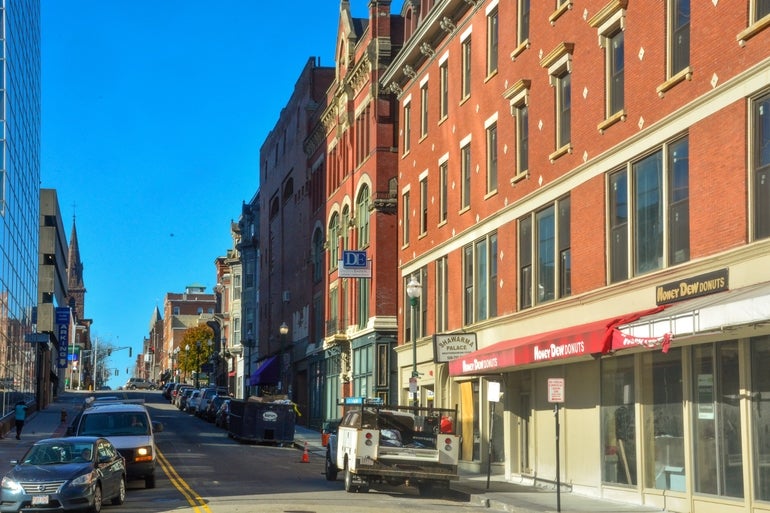As of Nov. 16, the number of open small businesses in Massachusetts is down 37% compared to January, according to data from the Opportunity Insights Recovery Tracker, which is overseen by a research and policy analyst group based at Harvard University.
This is a stark change from Jan. 20, when the first case of COVID-19 was reported in the United States, the number of open small businesses was up 1.8%, according to the data.
The number of small businesses open nationally is down 28.9% since January, which is well below the Massachusetts closure rate.
The data includes reference points for several important dates, including March 17, when the state’s public schools closed, and March 24, the day Gov. Charlie Baker issued a stay-at-home advisory and ordered all non-essential businesses closed to prevent the spread of the virus.
Notably the percentage of open small businesses between the school closure and the non-essential business shutdown decreased rapidly, from being down 10.8% to being down 33.4% over that one-week span, according to the data.
The greatest dip occurred between March 6, when the number of open small businesses was down 4.9%, and April 15, when the number of open small businesses was down 52%, according to the data. April 15, the report notes, was also the day federal stimulus payments first began to go out.
Stimulus check dispersal, according to the data, appears to have happened in tandem with an uptick in open small businesses, which increased to a pandemic peak of being down only 28.7% as of July 4. From there, however, the rate of open small businesses has decreased steadily and relatively slowly, compared to the initial drop.
The hardest-hit industry in Massachusetts, by far, according to the data, was leisure and hospitality, which as of Nov. 16 is down 54.6% compared to January, much higher than the national closure rate of 45.7%. A close second is education and health services, which is down 35.9% compared to January, as well as retail and transportation, which is down 29.3%, both as of Nov. 16. Those sectors, respectively, are down 23.5% and 22%, nationally.
Small professional and business services, 25.6% of which are closed as of Nov. 16, seemed to have fared the best, despite the number of small businesses open in those fields still experiencing a significant drop. Nationally, that figure is 18.1%.
The report comes just days before the first coronavirus vaccines are expected to receive emergency approval from the U.S. Food and Drug Administration, but also amid the largest coronavirus spike since spring, when virus spread first peaked in the United States.
Although aid came for many small businesses by way of semi-forgivable Paycheck Protection Program loan program, enacted as part of the the Coronavirus Aid, Relief, and Economic Security Act, also known as the CARES Act, a $2.2-trillion economic stimulus bill signed into law by President Donald Trump on March 27, which functioned as a lifeline for many business owners, it was not able to prevent widespread business closures, as evidenced by the Opportunity Insights data.
With vaccines tentatively slated for initial distribution for certain groups by year-end, and a new presidential administration on deck to take over in Washington, the road to economic recovery remains uncertain. As of Nov. 23, unemployment claims in Massachusetts reached a six-month high, with claims for the week ending Nov. 14 totaling 52,103.

